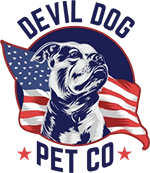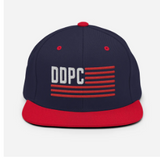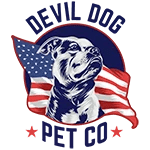Welcoming a new puppy into your home is akin to adding a bundle of joy to your family — it's an exciting, heartwarming, and life-changing commitment. However, this furry addition also comes with a suite of responsibilities, from training and socialization to nutrition and health care. As a first-time dog owner, the road ahead may seem daunting, but fear not! A well-prepared approach to puppy parenthood will ensure a smooth transition for both you and your cuddly companion. This article offers a holistic view of puppy care, transforming you from an anxious newbie into a confident caregiver. Dive into this treasure trove of doggy wisdom, where we'll journey through the fundamentals of puppy care, ensuring your pup grows into a happy, healthy, and well-behaved dog.
Setting the Foundation with Proper Training
The formative weeks of a puppy's life are crucial for setting the tone for future behavior. Basic training, such as house-training, sit, stay, and come commands, is essential and should start the moment your puppy sets paw into your home. Consistency is key, as puppies thrive on routine and clear expectations. Positive reinforcement, patience, and gentle guidance will help build a strong bond between you and your pup. Remember, training is an ongoing process, not a one-time event. Dedication to your puppy's learning journey will pay off in spades when you have a well-mannered adult dog.
Health and Nutrition for Vibrant Growth
Nutrition is the cornerstone of your puppy's health. Feeding your new companion a balanced diet tailored to their specific breed, size, and age is vital. A high-quality puppy food, rich in protein and essential nutrients, will support their rapid growth and development. Don't forget to schedule regular veterinary check-ups, vaccinations, and deworming sessions. Your vet will become an invaluable partner in maintaining your puppy's health, providing expert advice on diet, exercise, and disease prevention. A healthy puppy is a happy puppy, and that translates to countless memorable moments together.
Socialization and Behavior Shaping
A well-socialized puppy is a joy to be around. Early exposure to different people, animals, environments, and experiences is critical for your puppy to develop into a confident and well-adjusted adult dog. Encourage positive interactions, but be mindful not to overwhelm your little one. Socialization helps prevent behavioral problems such as fear, aggression, and anxiety. The more positive encounters your puppy has, the better prepared they will be to face the world with a wagging tail and a friendly demeanor.
Creating a Puppy-Safe Environment
Your home should be a safe haven for your curious puppy. Puppies are natural explorers and chewers, so puppy-proofing your space is non-negotiable.
Eliminate electrical hazards
- Securely tuck away loose wires and cords with cable organizers or cord covers.
- Use outlet protectors to block curious pups from exploring live plugs.
- Unplug unused appliances and electronics.
Banish toxins
- Move away or completely remove houseplants known to be poisonous to dogs such as Sago Palm, Oleander, Cyclamen, Kalanchoe, Tulips and Hyacinths.
- Store household cleaners, medications, and chemicals in high cabinets or locked drawers.
- Secure trash cans with childproof lids or keep them in closed cabinets.
Clear choking hazards
- Pick up small objects like coins, buttons, and paper clips from the floor.
- Store away jewelry, sewing needles, and other sharp items.
- Keep cleaning products and other liquids off countertops and out of reach.
Cozy crate retreat
- Create a designated space with a comfortable crate or bed for your puppy to relax and feel safe.
- Line the crate with soft bedding and leave familiar toys inside.
- Use the crate for potty training, quiet time, and overnight snoozes.
Natural Chew Haven
- Offer a selection of natural chews, including bully sticks, elk antler chews, and yak chews, to cater to different chewing preferences and needs.
- Rotate the chews regularly to maintain your pup's interest and to provide a variety of textures and tastes, which can help reduce boredom-related chewing.
- For puppies going through teething or dogs that enjoy cooler treats, consider offering chilled or frozen bully sticks to soothe gums and provide relief.
Positive play zone
- Choose a puppy-proofed area for supervised playtime.
- Engage your pup with interactive toys, fetch games, and training sessions.
- Invest in puppy gates to restrict access to certain areas if needed.
The Significance of Routine Veterinary Care
From the moment your puppy becomes a part of your family, it's essential to establish a systematic and proactive approach to their veterinary care. This journey begins with selecting a trustworthy veterinarian and scheduling regular visits, which play a crucial role in ensuring your puppy's health and happiness.
Routine Veterinary Visits: These visits are more than just a health checkup; they are an opportunity to assess your puppy's overall health and development. Regular appointments allow your vet to monitor your puppy's growth and identify any potential health issues early on. During these visits, your vet can track weight gain, check for signs of common puppy ailments, and ensure developmental milestones are being met.
Vaccinations: A critical component of puppy care, vaccinations protect your puppy from various diseases. Your vet will recommend a vaccination schedule based on your puppy's age, breed, and local health concerns. These vaccines are vital in preventing illnesses such as parvovirus, rabies, and distemper, which can be life-threatening but are preventable with proper immunization.
Spaying or Neutering: Discussing spaying or neutering with your vet is an important part of your puppy's early healthcare. These procedures not only help control the pet population but also offer health benefits, including reducing the risk of certain cancers and decreasing the likelihood of roaming or aggressive behavior.
Preventative Healthcare: A proactive approach to your puppy's health can prevent many common issues. This includes routine deworming, flea and tick prevention, and dental care. Early detection and prevention of these issues are key to ensuring your puppy grows up strong and resilient.
Nutritional Guidance: Your vet can also provide invaluable advice on your puppy's nutritional needs. Proper nutrition is essential for healthy growth and development. Your vet can recommend a diet that's appropriate for your puppy's age, breed, and any special health requirements.
Building a Relationship with Your Vet: Establishing a relationship with a trusted vet early on is invaluable. It provides peace of mind, knowing you have expert guidance throughout your dog's life. A vet who knows your puppy's health history can offer personalized care and advice, making them an essential partner in your puppy’s journey to adulthood.
Emergency Preparedness: It's also important to discuss emergency care. Knowing what to do in case of an emergency and having a plan can be lifesaving. Your vet can provide information on emergency services and how to recognize signs that your puppy needs immediate medical attention.
Remember, as your puppy grows and changes, so will their healthcare needs, and your vet will be there to guide you every step of the way.
Bonding and Building Lasting Companionship
Above all, developing a deep and meaningful bond with your puppy is the most rewarding aspect of dog ownership. The time and effort you invest in the relationship will forge an unbreakable connection. Engage in regular playtimes, cuddle sessions, and interactive activities. Be present and attentive to your puppy's emotional needs. A happy dog is one that feels loved, understood, and integrated into their human family. The love you give will be returned tenfold, creating a lasting companionship that enriches your life in ways you never imagined.
The journey of raising a puppy is an extraordinary adventure filled with learning, laughter, and love. By equipping yourself with the right knowledge and tools, you're setting the stage for a harmonious life with your new furry family member. Training, nutrition, socialization, safety, healthcare, and bonding are the pillars of responsible dog ownership. Attend to each of these aspects with care, and you'll enjoy the rewards of a loyal, contented, and well-behaved dog. Welcome to the incredible world of dog ownership — your life is about to get a whole lot brighter.






